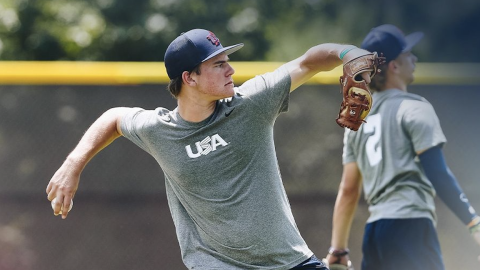We all realize that good coaches are the lifeblood of youth sports and play a significant role in improving sportsmanship, teamwork, physical wellness, and mental health of our children. What we don’t always acknowledge is that coaching is a demanding and challenging position that requires specific skills, knowledge, and experience to ensure the safety and well-being of both coaches and athletes. According to recent studies, coaches are at higher risk of stress, injuries, and burnout than many other professionals and therefore require specialized, ongoing training and support. Let’s explore why coach health and safety training is essential and look at several recommendations for implementing effective training programs.
Reasons for Coach Health and Safety Training
1. Reduce Risk of Injury and Liability
Coaches work in a high-risk environment, where athletes are susceptible to physical injuries, such as muscle strains, fractures, concussions, and even life-threatening emergencies. Coaches are responsible for ensuring the safety of their athletes during practices, games, and competitions. Therefore, coaches need to receive training on how to prevent, identify, and respond to sports-related injuries properly. Such training can help coaches avoid liability, decrease the risk of lawsuits, and maintain a safe sports environment. USA Baseball’s Basic First Aid course is a helpful resource for coaches to learn basic health and safety training.
2. Improve Coaching Skills
Coaching is a constantly evolving and complex field that requires coaches to be skilled in various areas, including communication, motivation, leadership, and conflict resolution. Health and safety training can help coaches improve their coaching skills and learn new techniques, such as injury prevention, nutrition, and exercise science. This, in turn, can enhance the quality of their coaching and the performance of their athletes.
3. Prevent Burnout
Coaching can be a stressful and exhausting job requiring long hours, dealing with conflicts, and managing a team of athletes with different personalities and abilities. Coaches who lack proper training and support are more likely to experience burnout, which can negatively affect their mental and physical health and impact their coaching effectiveness. Health and safety training can provide coaches with the skills and knowledge to manage and prevent burnout, such as time management, self-care, and stress reduction.
4. Promote Positive Mental Health
Coaches play an essential role in promoting mental health and well-being of athletes. They need to be aware of the signs of mental health problems, such as depression, anxiety, and substance abuse, and the strategies required to address them. Health and safety training can equip coaches with the skills to identify and respond to mental health issues among athletes, provide emotional support, and refer athletes to appropriate resources.
Recommendations for Effective Coach Health and Safety Training
1. Theory and Practice-Based Learning
Coach health and safety training should include both theoretical and practical components to provide coaches with a comprehensive understanding of health and safety issues and the skills to apply them in real-life situations.
2. Tailored Training Programs
Coach health and safety training should be tailored to the specific needs and challenges of coaches in different sports, levels, and contexts. The training should incorporate diverse perspectives, including cultural and gender diversity, to ensure effective communication and understanding among coaches and athletes.
3. Long-Term Support
Coach health and safety training should not be a one-time event but an ongoing process that includes continuous learning, feedback, and support for coaches. This can be achieved through follow-up workshops, coaching mentoring, and online resources.
4. Collaboration and Partnership
Coach health and safety training should involve collaboration and partnership between coaches, athletes, administrators, and health professionals to ensure a comprehensive and integrated approach to health and safety in sports. If you’re not sure where to begin, the team at USCAH can certainly help get you started!
A wide variety of courses and coach certifications can also be found on USABDevelops.com and the USA Baseball App that help coaches to learn and strengthen their leadership, communication, and skill-specific coaching abilities. Continuing education for coaches on health and safety not only helps our coaches succeed, but it also helps our kids as well. A true “win-win” … and in this case, winning IS everything!
Altfeld, S., Mallett, C. J., & Kellmann, M. (2015). Coaches’ burnout, stress, and recovery over a season: A longitudinal study. International Sport Coaching Journal, 2(2), 137–151.


